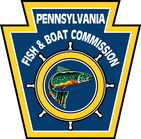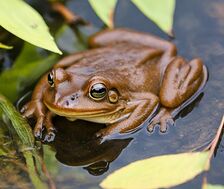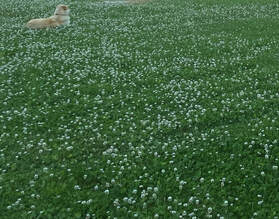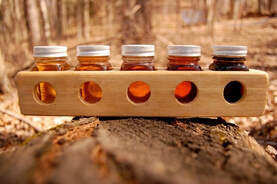CONSERVATION CORNER
A weekly blog for all things conservation
|
Kevin Brown, Ag Resource Specialist, BCCD
Solar, we hear a lot about it. We certainly hear the good stuff (in my opinion) because usually someone behind all those good things is trying to sell you something. If you are a regular reader of the article, you know my philosophy on how the world works in that aspect. I will digress at the end of the article on this. For now, you want to know about solar.
0 Comments
 Lacy Powers, BCCD, Conservation Technician A new regulation on fish stocking has been in effect since January 1st of 2024 by the Pennsylvania Fish and Boat Commission (PFBC). What is this new regulation and how does it affect you as a pond/lake owner or private citizen? The PFBC is now requiring a Notice of Stocking (NOS) form for any person or group engaging in fish stocking into Commonwealth waters. This regulation allows the PFBC to monitor the species, number, and location of fish that are entering the waters of the Commonwealth, as well as ensure the health and well-being of Commonwealth waters and aquatic life. Pennsylvania is not the first state to take a proactive response to the increasing challenges brought by aquatic invasive species, as 30 other states such as New York, New Jersey, and Maryland monitor fish stocking too. With this new regulation it is important to know exactly what Commonwealth waters are and when you need to submit a NOS form to the PFBC.  Lacy Powers, BCCD, Conservation Technician The cold chill of the winter months is finally working its way behind us as summer rounds the corner in Bradford County. This is a special time of year as everyone, as animals to plants, start to shake off the winter frost and embrace the birth of the new season. We begin to notice the tips of trees start to turn green and little seedlings make the mighty break through topsoil to bask in the sun. This burst of excitement can be observed around the pond too, as the ice melts and the pond’s inhabitants are finding new life in the warmer days. One such amphibian that is awakened this time of the season is the Spring Peeper.  Kevin Brown- BCCD, Ag Resource Specialist One of my favorite sayings- In this day and age, EVERYONE is trying to get into your pocket and get as much money out of it as they possibly can. This pressure has really built up over the last decade or two. As I try to think of examples from “back in the day”, I can only think of one or two that really stick out. However, lately, we get it from every angle. They can come up with anything to get a few more dollars from you. I love music. I was listening to an app on my phone one day and a really good song came on. I thought, “I would like to hear that again” so I hit rewind. A message came on that basically said, “we would love to play this song again for you, but you have to be a subscriber in order to do that. Please click here and for a low, low amount of $5/month and you can rewind every song you want”. Really? I need to be charged to hear a song again? No thanks.  Ryan Reed, A reprint from Forest Fridays, a DCNR publication Across much of the mid-Atlantic and northeastern states, sugaring season is well-underway. Of course, the bell cow for syrup production, the sugar maple, is the species most commonly tapped for this purpose. Maple sugaring seems to be trending upward in recent years (perhaps due to social media attention), but not everyone has a stand of sugar maples with which to work, which has led to some innovation. If you don’t have sugar maples, then why not try something else? A quick review of a few web sources reveals that some folks are indeed trying alternative species, with some interesting results. Some common species used in lieu of the sugar maple are red maple, silver maple, Norway maple, and boxelder (a close maple relative). These species make good options but require quite a bit more effort since their sugar contents are lower. |
AuthorsVarious staff at the Bradford County Conservation District Archives
July 2024
Categories
All
|
|
Bradford County Conservation District
Stoll Natural Resource Center 200 Lake Road, Suite E | Towanda PA 18848 Phone: (570)-485-3144 |
